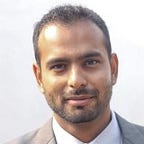Natural Language Processing, AI & Healthcare — The Future
The practitioners of medicine have practised evidence-based science for the last century if not more. Hence for that reason, when you say hypertension in Pakistan, it’s understood the same way by a doctor in the USA as it is by a doctor in rural Nigeria. However, the same cannot be said about how a patient would describe their disease to the doctor. Let me explain further.
A patient that comes to Pakistan with a complaint of hypertensive episodes would describe it as episodes of anger that give them “high” pressure in Nigeria they might describe it as a headache and in the US as a feeling of heaviness. This is where the ambiguity in diagnosis by a physician comes in. This is the part where certain doctors are considered experts at diagnosis. The famous cardiologist Dr Bernard Lown in his book “The Lost Art of Healing” emphasises the need to really listen to the patient. Look at their body language, listen to the words they use and colour the words with local context to reach a diagnosis that would be missed by the untrained eye. The book of medicine can only teach you so much, you must learn to study people and society to be a good physician and this he laments is the Lost Art of Healing that physicians must reignite.
With this piece, I aim to introduce the “lost art” to the technology we use. Healthcare technology as we have it today in our healthcare system is built to pick up objective cues only: note the patients blood pressure with a probe, their temperature with a stick, their heart rate through a watch monitor. Such technology misses out on a plethora of information that the patient is communicating to us, simply because we do not have a way to record it. The words that the patients uses, the facial expressions that they have when they say they are doing “just fine” to the doctor & the way that they describe their past history is all information that is missed by our computers. Is it possible to capture this information with the current technology that’s out there today that we have at our disposal? I believe it is.
Imagine an EMR system that was smart enough to hear the patient history as it was delivered to the doctor (think of an Alexa like system) which gets smarter with time and learns to coat the narrative with the sociological context of the region. Such a system will get smarter with time the more data points it gets. The technology to deliver on this is already out there, it’s about putting the pieces together.
The process of absorbing common language cues and turning them into universally understandable communication is called Natural Language Processing and I see it as the next frontier in healthcare. I see it as a way to make our technology empathetic and compassionate. It’s the way to overcome the decision making limitations of the human being.
Doctors and their decisions are painted by their individual circumstances and quality of training. We could create a super doctor that not only knows the medical books better but also understands social cues better than most humans to give us far superior diagnosis and treatment.
The Harvard School of Public Health through the Lown’s Community Health Centres project is taking on the ambitious task of setting up community health centres in 9 countries across the world. Spanning from West Africa to South Asia. Unifying all these centers would be standardized SOPs and a common Electronic Medical Record System. That right there is a huge opportunity .We could learn so much about how hypertension (and many other diseases) get described to the doctor in Nigeria vs the doctor in Pakistan. This and many other opportunities to learn from work that is spanning borders and regions in healthcare is the reason why this venture is so exciting.
Let’s make our technology more humane, more compassionate and bring the “Lost Art of Healing” to our technology too. We already have the pieces to the puzzle lets put those pieces together. This will truly be world-changing work.
If you wish to get involved in this write to us at mmustafa@harvard.hsph.edu or to gdanaei@harvard.hsph.edu
